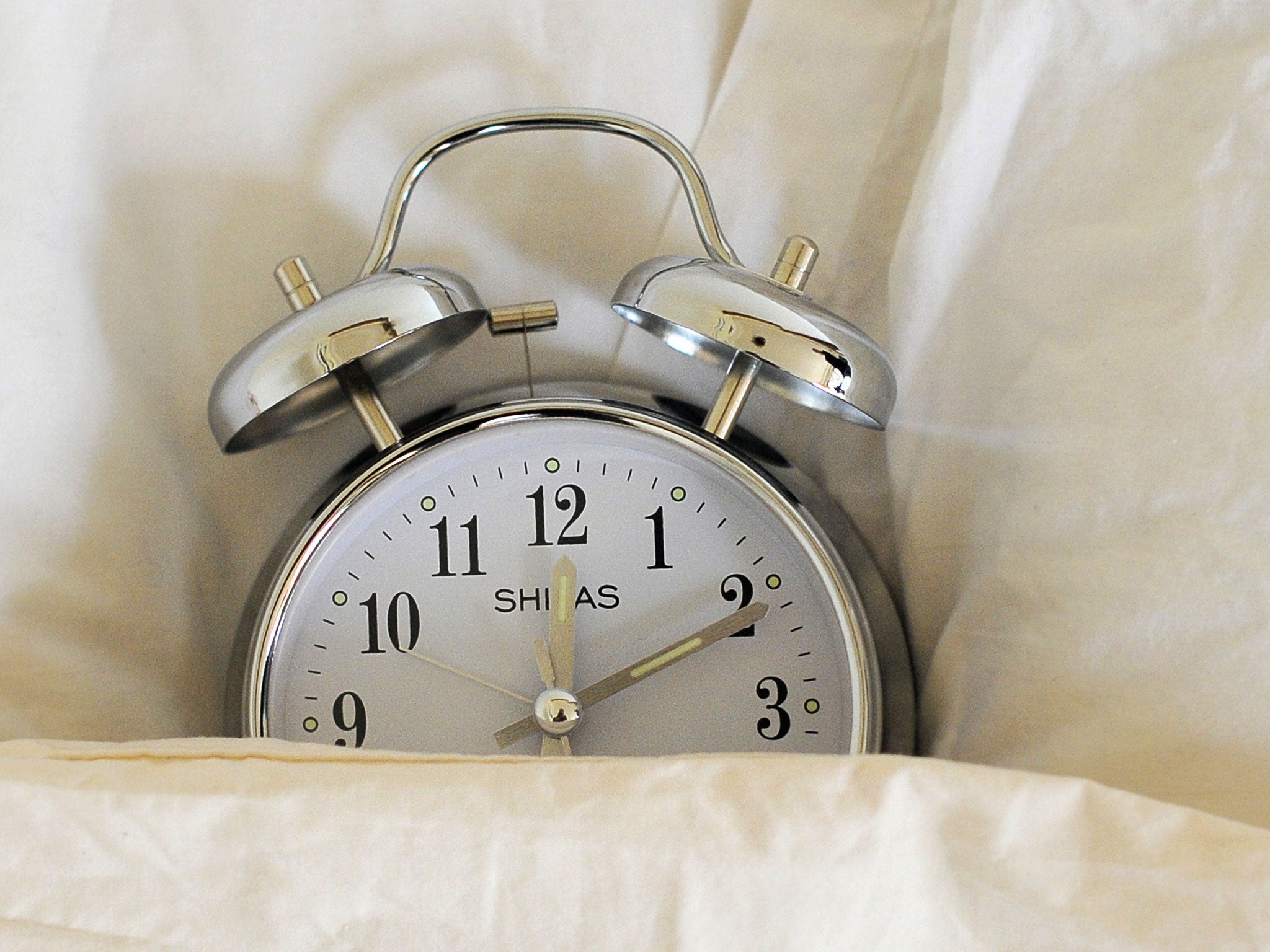The time is...British Summer Time explained
Why you are losing an hour of sleep this weekend

Your support helps us to tell the story
From reproductive rights to climate change to Big Tech, The Independent is on the ground when the story is developing. Whether it's investigating the financials of Elon Musk's pro-Trump PAC or producing our latest documentary, 'The A Word', which shines a light on the American women fighting for reproductive rights, we know how important it is to parse out the facts from the messaging.
At such a critical moment in US history, we need reporters on the ground. Your donation allows us to keep sending journalists to speak to both sides of the story.
The Independent is trusted by Americans across the entire political spectrum. And unlike many other quality news outlets, we choose not to lock Americans out of our reporting and analysis with paywalls. We believe quality journalism should be available to everyone, paid for by those who can afford it.
Your support makes all the difference.Spring forward; fall back. In the early hours of Sunday morning, the country will lose an hour’s sleep as the clocks go forward to mark the start of British Summer Time (BST).
At 1am on 30 March, civil time in the UK will be fast-forwarded one hour ahead of Greenwich Mean Time (GMT), heralding longer, lighter evenings and, hopefully, the tentative beginnings of summer.
In today’s digitalised world many people don’t have to worry about adjusting the hands on a clock - but here’s the reasoning behind it.
What is British Summer Time?
The idea of British Summer Time was first proposed in the UK by William Willett, who happens to be the great-great-grandfather of Coldplay frontman Chris Martin. He felt that valuable daylight was being wasted in the mornings during the summer months because people were still in bed.
In 1907 he published a pamphlet called The Waste of Daylight, in which he outlined his plans to change the time of the nation’s clocks. But when he died in 1915 the Government still refused to back BST.
It wasn’t until a year later, in May 1916, that Britain passed the Summer Time Act and started changing its clocks twice a year.
What are the benefits?
Proponents argue that British Summer Time is good for physical and psychological health, particularly in terms of relieving the symptoms of Seasonal Affective Disorder (SAD).
The lighter evenings are also said to reduce road traffic accidents and crime.
And the downsides?
Well, there’s always the risk of turning up late for a family dinner/ football match/ church service. But, on a more serious note, critics have said that changing the clocks is economically and socially disruptive, therefore cancelling out any benefits.
There are also a number of theories that suggest putting the clocks forward has a negative impact on the human body – in 2012 a University of Alabama study found the risk of a heart attack surges by 10 per cent on the Monday and Tuesday after moving the clocks forward.
What is British Double Summer Time (BDST)?
In 1940, during the Second World War, clocks across Britain were not put back an hour at the end of British Summer Time, in order to save fuel and money.
However, in subsequent years, they continued to be put forward an hour each spring and then put back an hour each autumn until July 1945. This meant that during these summers the UK was two hours ahead of GMT .
So when exactly do the clocks go forward?
British Summer Time begins on Sunday 30 March. This means you should put your clocks forward at 1am on Sunday 30 or, failing that, before you bed down for the night on Saturday.
Join our commenting forum
Join thought-provoking conversations, follow other Independent readers and see their replies
Comments